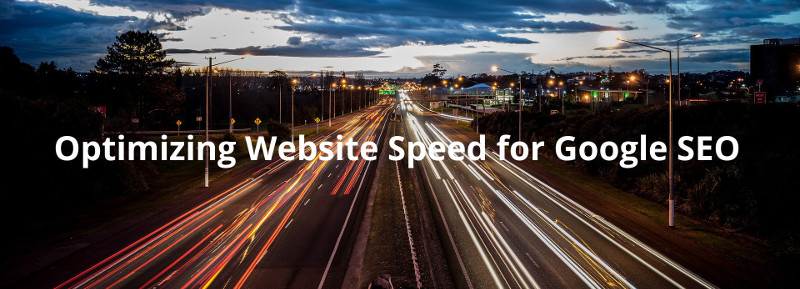
Page Not ranking well or ranking went down on Google!
Did you know that Google penalizes websites with page loading that takes more than 1.5 seconds? Yes this is also a factor which might affect your rankings in search results. If your competitors website loads faster than that of your website, then they would definitely rank higher than yours in the search results.
I will describe why website speed matters and how to optimize your website for speed. I will also explain why we moved away from Wordpress for some websites that needed more than just a simple website.
Google is a search engine giant where the decisions are data driven. Means they will analyse the data they have regarding something and then take decisions. So they analysed the nature of users searching and found that people leaves a website before it is loaded which takes long time to load. This happened after High speed internet has become a common thing in majority houses. People expect the websites to load faster given the high speed internet connection and thus set a new standard for website speed.
Most of the visitors might exit a website which is taking longer than 1.5 seconds to show contents.
But somehow Google mistook this as the time to complete the requests than render the page. Google has provided a tool to optimize the website speed called PageSpeed Tool which allows you to analyze your website pages and take measures to optimize for maximum performance.
I often use a tool to check page speed offered by GTmetrix. There is even better tool which will show results that your web page takes to fully render in a browser. So you will get exact idea how your web page is rendered to a user.
 GtMetrix screen
GtMetrix screen
This comes under the Technical SEO where you will optimize your entire website for speed and performance.
The simple method is to follow the PageSpeed insights given when you analyze a website in one of the website i have mentioned in the above section.
The common things to look for are:
And so on. These insights will be displayed in the analysis report as in the screenshot attached above.
One of the main factor is at choosing the server side program. If you use programming frameworks which takes lot of server resource and takes more than 200 ms to produce a response, that can be a problem.
We were using Wordpress to build most of websites we do. This is because of the ease of building websites with Wordpress and its content management system. Wordpress has many popular seo plugins which will help in on page optimization.
There are some drawbacks though for the Wordpress like if you use many plugins, the server response time goes really down which can affect the site performance as whole. Most shared servers are not optimized for Wordpress and this also cause issue with server response time.
Wordpress is developed to build simple websites and blogs which doesn’t have any complex programs to do. So if you are doing a simple company website with 10 - 20 simple pages and a blog, it should be fine. But do not use a Wordpress for a complex eCommerce website, Directory listing or a website that has user area and related functions. Remember the more plugins and codes, the heavier Wordpress becomes. This will reduce the speed of the website drastically and can affect SEO.
One of our client at DigitalSoupMedia wanted to setup a directory listing website. Then we built one using Wordpress which was easy. But creating many listings has drastically affected the page load speed and this could be a big issue when it comes to doing SEO.
We did some research on fastest web frameworks that we can use to build a directory listing website which also has a blog. The solution that came up was to use Laravel (backend) and Lumen (frontend) frameworks together. Lumen is a light framework from the Laravel builders itself. So there is compatibility with both except that Lumen only had essential components to deliver maximum performance.
The result was surprising!
Even though we were trying to reach a page speed of 1.5 seconds, what we got was pages getting loaded in 0.7 seconds to 1.2 seconds.
I will be writing another blog on how we did the Laravel + Lumen in 1 weeks time. Please subscribe to our newsletter to get latest updates.